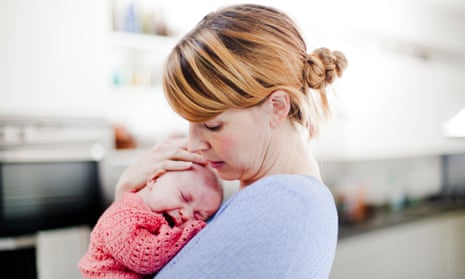Thousands of women are having to cope alone with mental health problems caused by pregnancy or giving birth because the NHS cannot provide the necessary help, a leaked report has revealed.
While up to one in five mothers have problems such as postnatal depression and post-traumatic stress disorder linked to childbirth, many are going untreated because specialist NHS care for them is so limited and the “gap” in help so wide, the research found.
The secret report, the first in-depth audit of how much care there is for maternal mental illness, found that in many areas of England, services are patchy, and in many others there are none at all.
Despite receiving the document in May 2017, neither Health Education England, the NHS agency that commissioned it, nor NHS England, which paid for the report, has published it, prompting concern among doctors that both are embarrassed by its conclusions.
Agnes Hann, the research manager at the National Childbirth Trust, said: “These findings are shocking, and mean that thousands of women experiencing potentially serious perinatal mental health problems are not getting the support they need.
“Perinatal mental illness can have a severe and long-term impact on mothers, babies and families. In extreme circumstances, it can result in tragedy – suicide is a leading cause of maternal death.”
Women who are struggling with mental health problems face a postcode lottery and sometimes long delays in getting help, and the NHS has very few staff able to treat their problems, the 52-page report said.
Some women who need inpatient psychiatric treatment in a mother and baby unit have to travel more than 30 miles from their home area to get a place, because England only has 15 such units, which have 115 beds between them.
Between 10% and 20% of women who give birth develop some form of mental illness, ranging from anxiety and depression to more complex conditions such as PTSD and psychosis. With about 665,000 births a year in England, this means 66,500-133,000 women a year develop problems.
However, the report said that in 2016, specialist community perinatal mental health teams treated an estimated 13,600 women, and 800 others were treated as inpatients. Taken together, those two groups make up 2% of all those who gave birth, meaning many thousands went untreated.Dr Alain Gregoire, the chairman of the Maternal Mental Health Alliance, urged NHS chiefs to publish the report to encourage local health service bodies to recognise the full extent of the “national scandal” of undertreatment of mothers struggling with mental illness.
An acute lack of staff who are available and properly trained to tackle a growing tide of maternal mental ill-health is a key reason why so many women struggle to access care, added Gregoire, who is also an NHS psychiatrist specialising in perinatal mental health conditions.
“If we didn’t have enough staff and time in maternity services for women to be tested for diabetes or high blood pressure, and to give them the care that they need, that would be a national scandal. But the equivalent is what’s going on in maternity services,” he said.
Recent research from the Avon longitudinal study of parents and children found the proportion of mothers experiencing mental ill-health has risen from between 10% and 15% 20 years ago to as much as 25% now, he said.
The report, produced by the NHS Benchmarking Network, a group of experts who worked closely with doctors and health visitors during their research, also found that:
- Only 1.3% of obstetricians’ time, 1.4% of midwives’ time and 0.79% of health visitors’ time is taken up with treating maternal mental ill-health.
- Overall capacity levels in university perinatal services appear to be limited and focused on a small number of specialist positions.
- There is “variation across the country” in women’s access to these potentially life-saving services. While certain areas of England have some specialist provision, others have none.
- The average wait to see a health visitor who specialises in perinatal mental health problems is 17 days, because there are so few of them.
The report was compiled in spring 2017 and uses data from 2016. NHS England has announced plans to spend £365m by 2021 on expanding provision to address what Claire Murdoch, its national mental health director, has acknowledged is a glaring gap in services. For example, four new mother and baby units are to open in areas of greatest need.
NHS England has pledged that at least 30,000 more women a year will be able to get treatment close to their homes and available when they need it. It plans to end the unequal access to care by ensuring every region of England has a community-based team offering specialist support.
Paul Williams, a GP and Labour member of the health and social care select committee, said: “Many women who develop mental health problems in pregnancy have a wholly inadequate experience of care. There are problems with diagnosis, responses are too slow and the standard of care varies depending on where you live.
“There are many ‘priorities’ for the NHS, but in this case, at least two people suffer as a result of the condition – the mother and her baby – and the consequences of not reacting quickly. The impacts of failure to manage perinatal mental heath problems adequately can be lifelong.”
NHS England said: “This out-of-date report describes the situation two years ago, so it ignores all the progress which has been made since then – enabling an additional 30,000 women in all areas of the country [to have] access to timely, evidence-based, specialist NHS care.”
